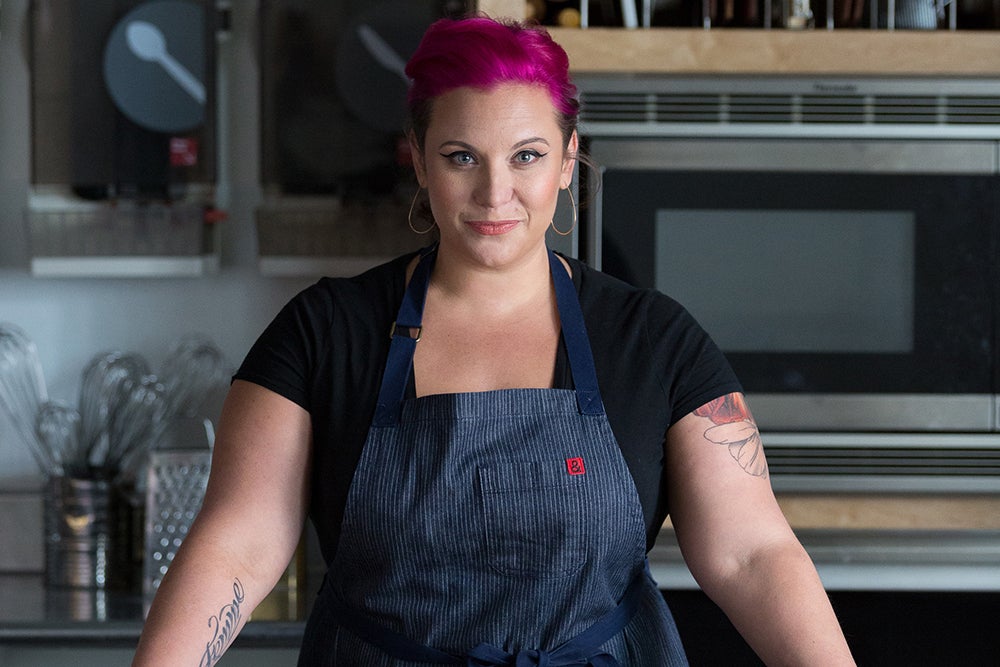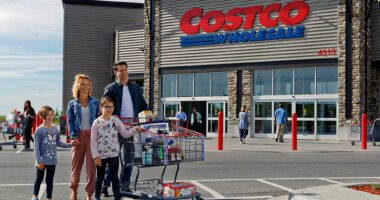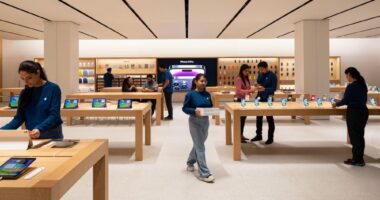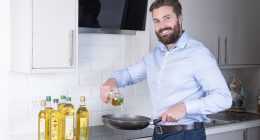7 min read
This story appears in the July 2020 issue of Entrepreneur. Subscribe »
Christina Stembel, founder, Farmgirl Flowers
 Old idea: Carefully curated products
Old idea: Carefully curated products
New idea: More options at lower cost
When the pandemic forced Christina Stembel to change her business, she was horrified. Then she was relieved. And now she has a stronger business as a result.
Stembel is the founder of Farmgirl Flowers, a San Francisco–based floral arrangements company. She started it in 2010, when she saw a way to stand out in a crowded market. The internet is full of floral companies, but most of them outsource fulfillment, surrendering control of the quality and design of their bouquets as a way to boost margins. Stembel did the opposite. Her arrangements had a point of view, she offered a small variety of them, and everything would be created in-house — ensuring high quality.
Flower lovers took notice, and a decade later, the bootstrapped operation has grown into a national brand with $32 million in sales and nearly 200 employees. Stembel has seen competitors come and go, but she cherished the control her team had of their product, costly as it may be.
But underneath it all, there’s been a problem. “Last year, we made under 1 percent net margins,” she admits. “To sell $32 million, to work that hard, and not make any profits?” But she hadn’t been willing to give up the thing she thought made Farmgirl Flowers so special.
Related: What’s Your Pandemic Pivot? 4 Key Steps for Startups to Survive Catastrophe.
When the pandemic hit, however, her equation changed. San Francisco didn’t consider her an essential business, which meant that her local flower production had to shut down. Meanwhile, her outsourcing competitors were able to keep going. “I set my company up in a way that I was so proud of, and I shouldn’t have been. Because it left us with vulnerabilities.”
Stembel crunched the numbers and figured out that her business could survive for eight weeks. It wasn’t enough. She needed to shift. So she hustled to open four new distribution centers, expanding a partnership with suppliers in Ecuador and setting up operations with three partner farms in California. It was enough to keep the business alive in the near term, and she started to see an opportunity to build a smarter operation for the long term.
“What we’ve come up with is a hybridized model,” she says. Farmgirl will still operate its own distribution center to maintain creative control of signature designs but will also lean on outside fulfillment centers for simpler bouquets. And by diversifying product offerings to include easy items like peony bunches, Stembel is hoping to bring in additional revenue.
“I’m drained,” Stembel says. “But I also see a light at the end of the tunnel.” The changes made to her model will eventually add at least 10 percent net to her company’s bottom line, a business-saving shift. “We can make it now. And we can be a stronger, more resilient, less vulnerable company in the future.”
Matthew Herman and David Kien, founders, Boy Smells
 Old idea: Sell to stores
Old idea: Sell to stores
New idea: D2C all the way!
Matthew Herman and David Kien (pictured, from left) went to Paris in February to pitch their fast-growing candle line, Boy Smells, to retailers. Once they landed, concerns over the coronavirus went from a whisper to a roar, and almost all their meetings were canceled.
They returned to Los Angeles to shelter at home — and they had an idea.
Related: Finding Success During Trying Times
Since launching in 2016, Boy Smells built an omnichannel strategy: Wholesale accounts made up 75 percent of its business; 25 was from D2C sales. But now, as retailers were canceling orders and closing doors, the founders told their team to focus on D2C. “We saw website traffic spike,” Herman says.
Herman and Kien (who are also partners in life) started pouring 1,000 candles a week in their home, and recruited friends to build and sticker boxes. Now D2C sales make up 90 percent of their business — and the brand is exceeding its original 2020 goals. “We’re flexing some new muscles,” Herman says. “We’ll continue to speak to customers directly.”
Francis Davidson, cofounder and CEO, Sonder
 Old idea: Short-term rentals
Old idea: Short-term rentals
New idea: Stay as long as you need
Sonder fuses the professionalism of hotels with the coziness of Airbnb. The hospitality company leases, designs, and operates apartment units, and rents them out for short-term stays. When COVID-19 hit, travel demand plummeted 90 percent. “We had to look at every lever we could pull to mitigate the drop,” says CEO Francis Davidson. “We started thinking about medical workers who may need housing, or people stuck somewhere because of travel restrictions.”
His team started focusing entirely on promoting long-term stays, offering a 40 percent discount for any booking longer than 14 days. “Those are now more than 75 percent of our business,” he says. Average occupancy is at just 65 percent, though that’s considerably better than the hotel industry’s decline. Davidson anticipates a long and slow recovery for the industry, but he’s seeing long-term stays as a new ray of hope. “It will continue to be a substantial part of our strategy,” he says. “And we’re just getting better and better at it.”
Related: What the Regime Uncertainty of the Pandemic Means for Entrepreneurs
Levi fried and Harmony sage, founders, Long Beach Beer Lab
 Old idea: Quirky place, quirky offerings
Old idea: Quirky place, quirky offerings
New idea: Become as essential as possible
Long Beach Beer Lab started with a simple premise: It was a brewery-meets-bakery, selling canned growlers to go and sourdough pizzas. After launching in its California neighborhood in 2017, it fast became a local favorite. But when nonessential businesses were ordered to close, husband-and-wife duo Levi Fried and Harmony Sage realized they weren’t considered essential. So they made some changes.
They transformed the beer lab into a grocer, dubbed Long Beach Bodega Lab. The pizza and beer were joined by eggs, yeast, rice, beans, and other coveted basics, and demand soared. “I’m busier than ever, and I only foresee getting busier,” says Fried, who doubled up on stocking items like flour — constantly updating their inventory — after a few weeks of observing customers’ new buying habits. “We’ve been bettering our system in dealing with logistics, online ordering — all those things that were foreign to us. The initial excitement has died down, but the enthusiasm has not.”
Karen Akunowicz, chef and owner, Fox & the Knife
 Old idea: You come to us
Old idea: You come to us
New idea: We go to you
Karen Akunowicz never served takeout. It’s not what her kind of restaurant does. The Top Chef vet opened her Boston restaurant, Fox & the Knife, in February 2019, and 12 months later, it had been praised by countless press outlets and named a James Beard Award semifinalist for Best New Restaurant. But in mid-March, when restaurants were told to close, she knew changes would have to be made.
Related: 3 Major Opportunities That Will Come From This Pandemic
That night, she asked her team to create their first-ever takeout menus, adjusted supply purchases, got in touch with her contact at delivery service Caviar, and created two new brands on Instagram: Fox at Home would offer takeout, and Fox Pasta Boston would sell fresh pasta by the pound. “How can we give people at home a little bit of the magic from Fox & the Knife?” Akunowicz says. Loyals embraced the new offering, which is keeping the business afloat. “It’s enough to sustain us for now, but it’s not viable for the long term,” Akunowicz says. “My mom always tells me, ‘Karen, you can do anything for a year.’ So I’m keeping her voice in my head.”
Image Credit: Photos Courtesy of Farmgirl Flowers; Boy Smells; Sonder; Long Beach Beer; Matt Kurkowski
loading…
This article is from Entrepreneur.com









